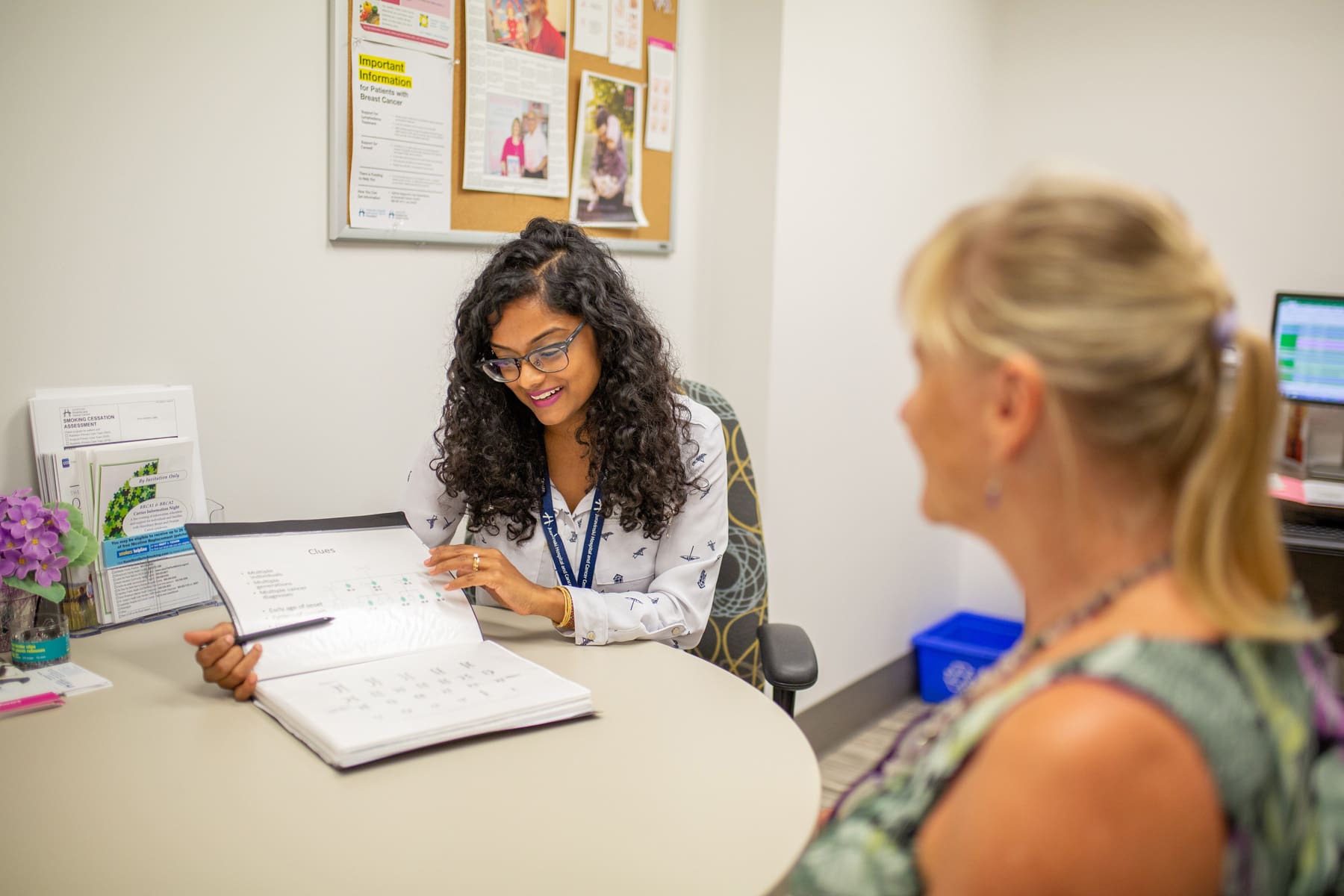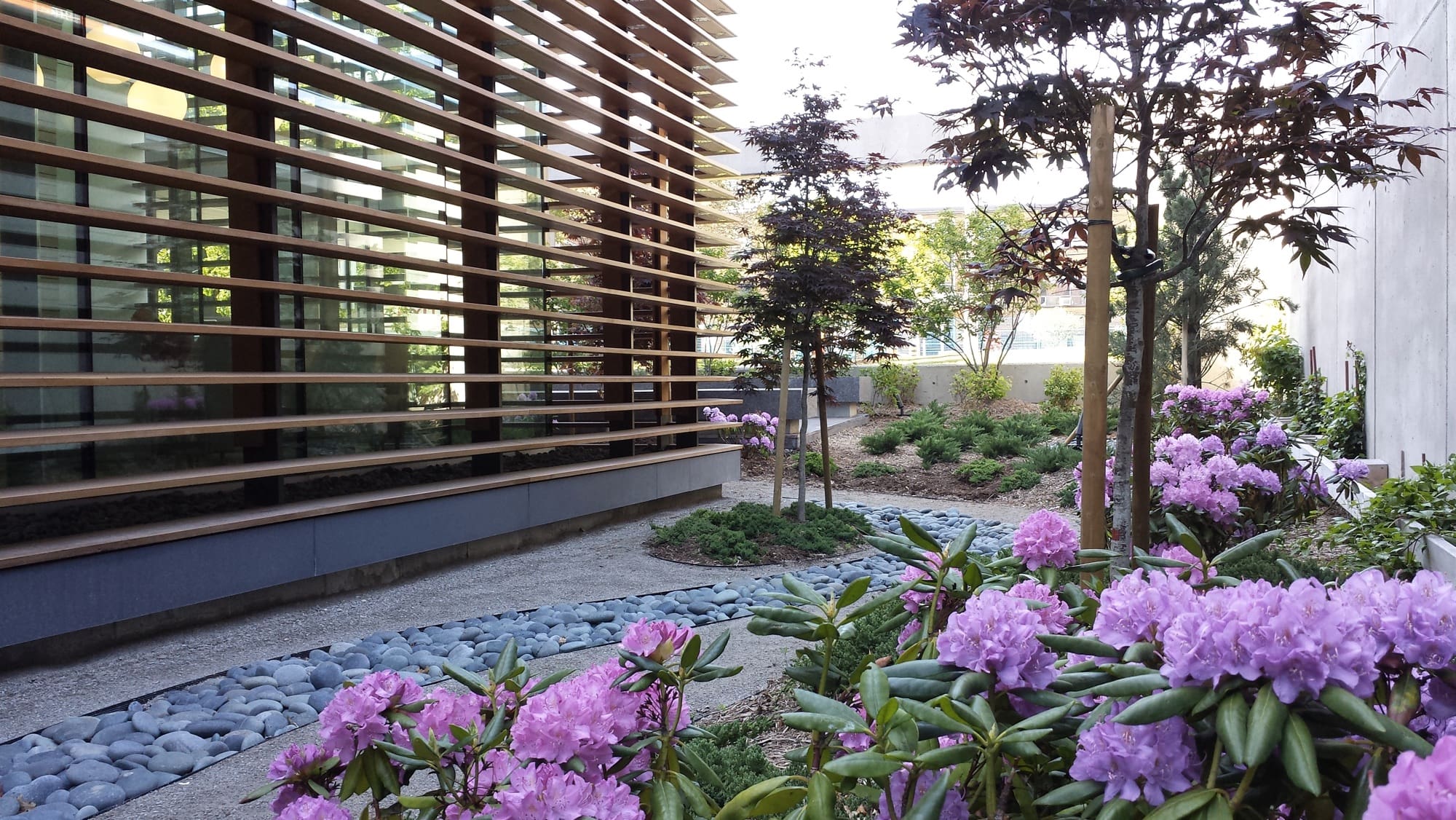Family History and High Risk Assessment
Most breast cancer occurs by chance. However, 5 to 10 per cent of breast cancer is hereditary, meaning it runs in families. Families with a hereditary form of breast cancer will often have one or more of the following:
- Breast cancer in women less than age 50 or before menopause
- Women with breast cancer in both breasts
- Men with breast cancer
- Women with ovarian cancer
- Multiple cases of breast and/or ovarian cancer in close blood relatives
- Breast cancer in a family that also has multiple cases of prostate cancer in men and/or pancreatic cancer
- Breast and/or ovarian cancer in a family with Ashkenazi Jewish ancestry
Your healthcare provider can refer you to the Cancer Risk Assessment Clinic for a family history assessment. Before your appointment you may be asked to fill out a Family History Questionnaire.
High Risk Assessment Having a family history of cancer does not necessarily mean that you are at high risk. A genetic counsellor can do an assessment to help determine your risk. Women at high risk may include:
- Women who are known, or who are at risk, to have inherited a mutation (change) in a breast cancer gene such as BRCA1 or BRCA2.
- Women whose chance to develop breast cancer in their lifetime is more than 25% due to family history of cancer. This assessment is done through a genetic counselling appointment
- Women who have had significant radiation to the chest area in the past, such as women who have had radiation treatment for lymphoma.
Women aged 30 to 69 who are identified as being at high risk for breast cancer can receive annual mammography and breast magnetic resonance imaging (MRI) screening through the OBSP High Risk Screening Program.
For information on What to Expect from a Genetic Assessment, please click here.
Click Here to Learn About Genetic Testing



